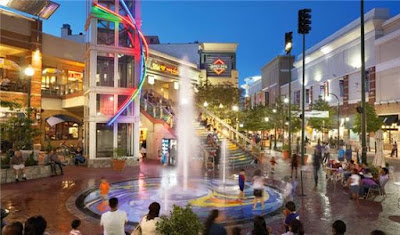Translate
3/23/21
Knowledge Tourism in the Knowledge Economy
2/16/21
Arezza - Knowledge Tourism
Travel Planning and Destination Management in the United States and Italy
The Knowledge Tourism concept brings together local customs, values, and traditions with expertise in a variety of disciplines to learn, experience and expand knowledge of the territory in a holistic program that addresses:
Community histories that take-into-account the shaping of economic development projects
Geography and historic trade routes that consider river, lake and coastal navigation, highways, wagon trails and rail routes to ensure sustainability and resilience.
Industry Commerce Agriculture and Sustainability
Places transitioning from traditional industrial and commercial activities to technologically innovative ones; in some instances, they are also able to re-establish their traditional economic activities with a successful application of the so-called knowledge economy and, in the process, becoming once again competitive in the world marketplace;
Best Experienced in the Company of Local Friends and Experts
Tourism is one of the largest industries in the world economy right up there with real estate, autos, and financial services. It is also highly segmented: business travel, meetings, cruises, family vacations, food, and wine travel, responsible, sustainable, ethical, and more.
Cultural Tourism assumes uniquely local dimensions wherever you go; the activities that you, the local or global visitor, select and, irrespective of the length of your stay, are unique of the community you are visiting and rooted into the local economy, culture and traditions.
Knowledge Tourism Means Doing and Going Where the Locals Go
The Environment the importance to a community of environmental issues and practices like energy efficiency and water conservation cannot be underestimated, especially if tourism is an important contributor to the local economy.
Educated Travelers select destinations primarily on-the-basis of cultural, gastronomic, wellness and similar preferences; increasingly, they expect that the places they visit reflect their values on key issues like recycling practices, air and water quality, as well as the availability and quality of public transit.
Business Travelers require efficient plans to meet trip objectives. This may entail visiting several locations in a compressed period-of-time to seek investment and sales opportunities. They look to Main Streets shopping and entertainment venues, Historic Districts and other community neighborhoods that have or plan to put in place energy savings measures as well as other environmental safeguards that help reduce the cost of doing business in that local area.
A Successful Destination is defined as one that develops projects built around existing facilities that need upgrading and/or expansion to manage tourism flows and local production capabilities to enhance community offerings.
Communities as Anchors for Local and Regional Travel
Cultural Anchors Museums, Theaters and other Historic Buildings located on Main Street and in Historic Districts are repositories of a community’s values and traditions. Each Local Project integrates architecture with digital media and engages visitors through interaction with local citizens.
The best way to travel is in the company of people who live and work in the places you visit
10/04/17
Industry and Commerce Itineraries
 Baltimore was the first and
remains among the most successful efforts at redeveloping a downtown area. The Inner Harbor is
a major travel destination and home to a unique museum made up of historic ships that have served the
local community and the nation over time.
Baltimore was the first and
remains among the most successful efforts at redeveloping a downtown area. The Inner Harbor is
a major travel destination and home to a unique museum made up of historic ships that have served the
local community and the nation over time. In Hershey, the Antique Automobile Club of America Museum
traces America’s love affair with the automobile and
its cultural and economic contributions, ranging from drive-in movies, to gas
stations, diners, shopping malls and long distance business and vacation
travel.
In Hershey, the Antique Automobile Club of America Museum
traces America’s love affair with the automobile and
its cultural and economic contributions, ranging from drive-in movies, to gas
stations, diners, shopping malls and long distance business and vacation
travel.Similar experiences that provide a uniquely local eno-gastronomical atmosphere with historical and sustainable attractions are present in Southeastern Pennsylvania, in Philadelphia Neighborhoods and Hershey Harrisburg and the Susquehanna River Valley.




















